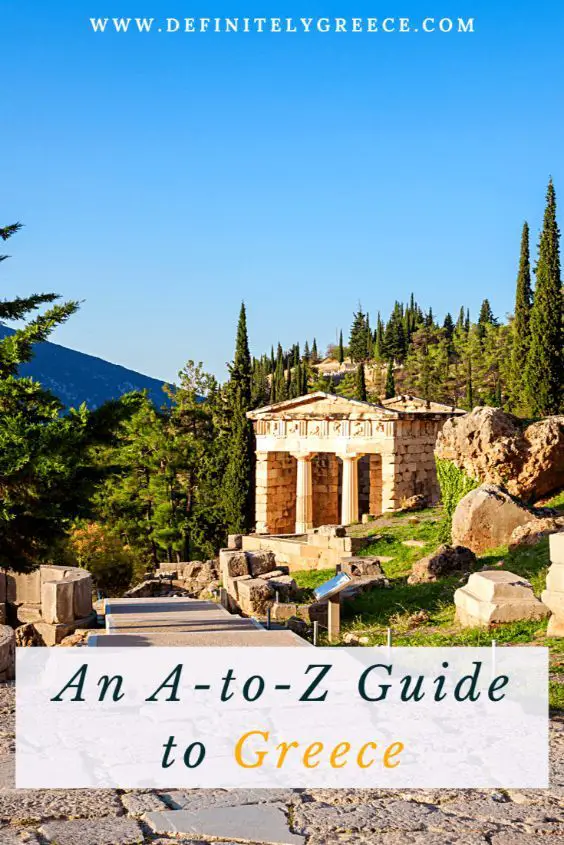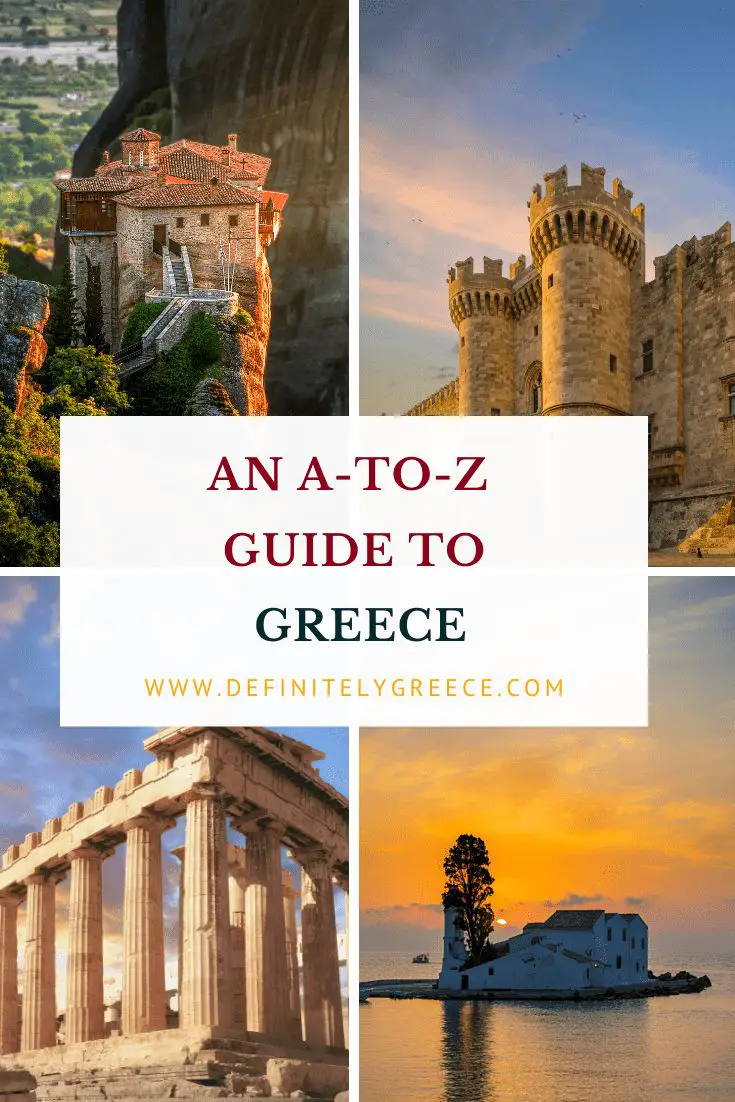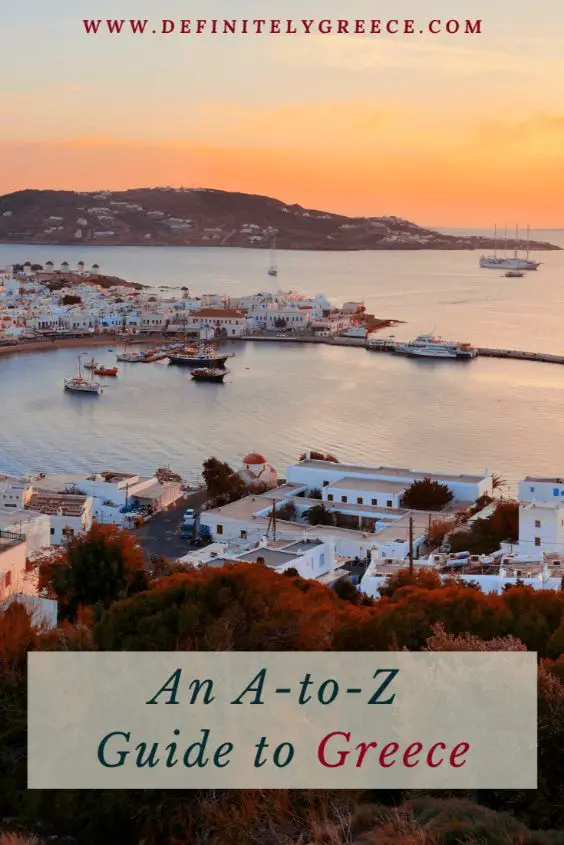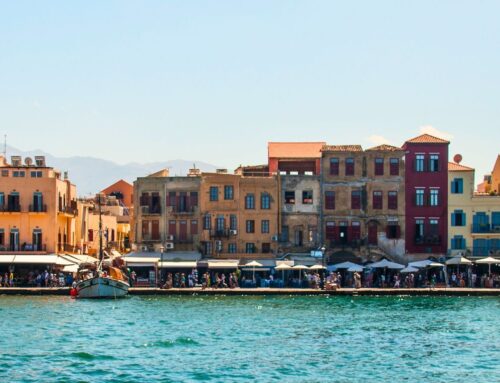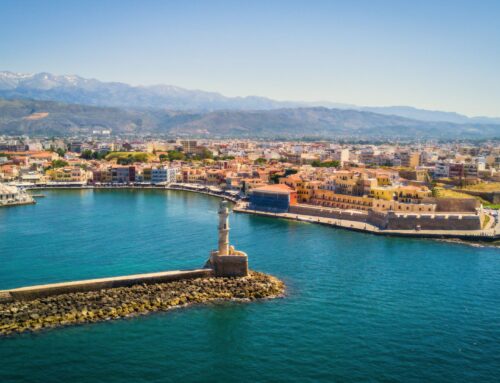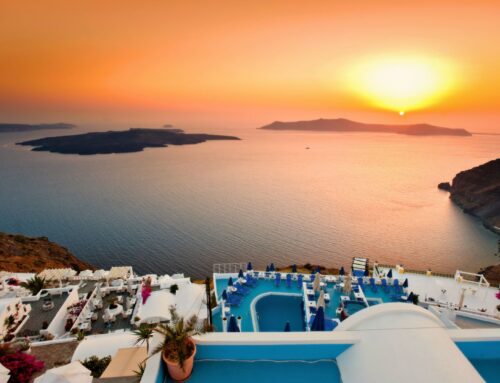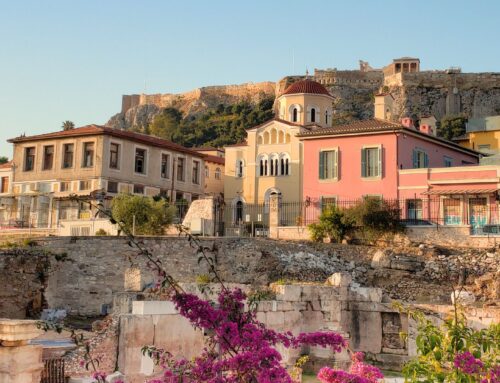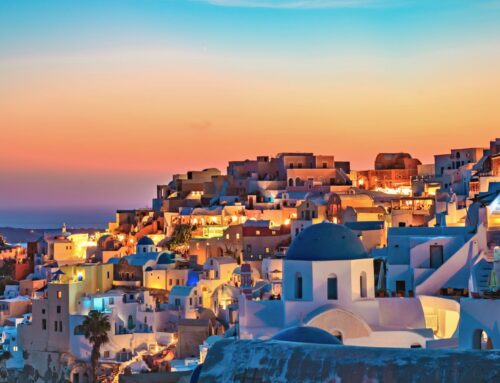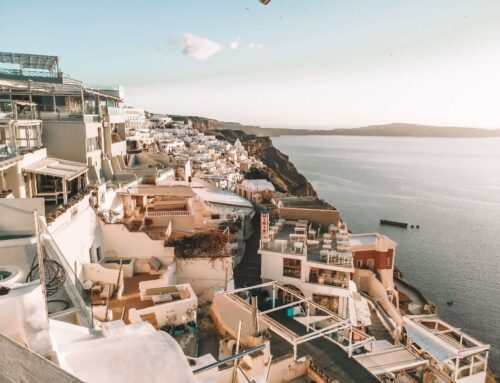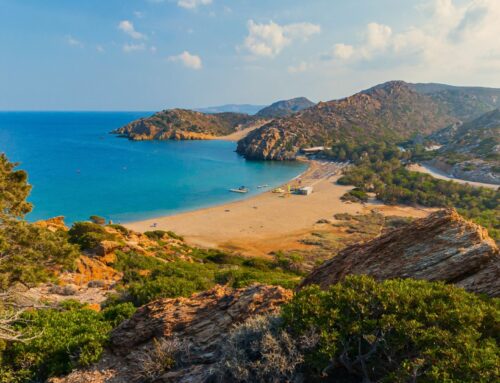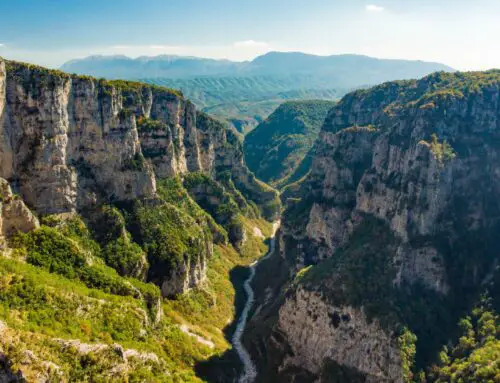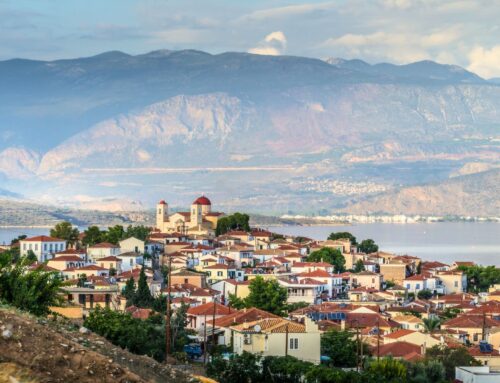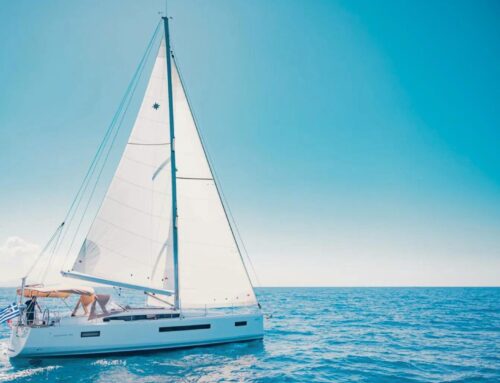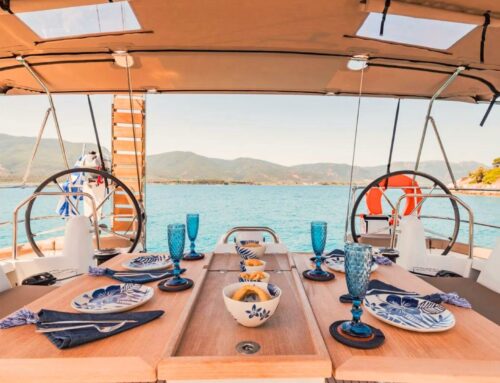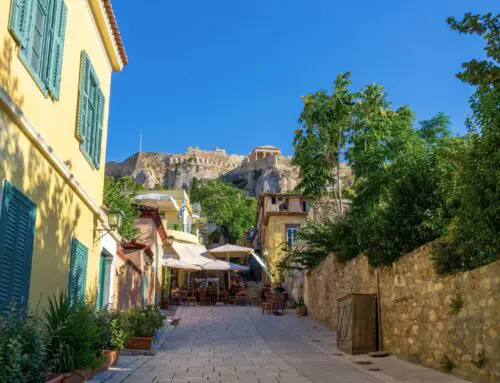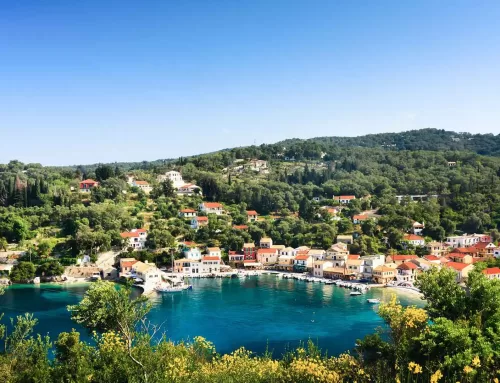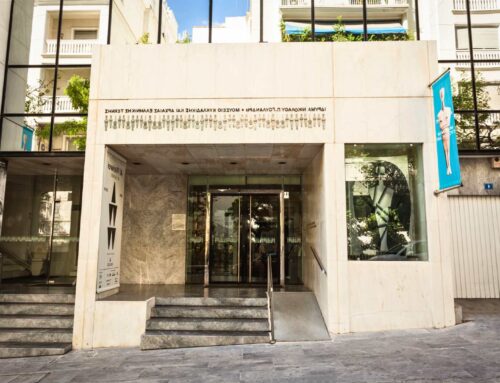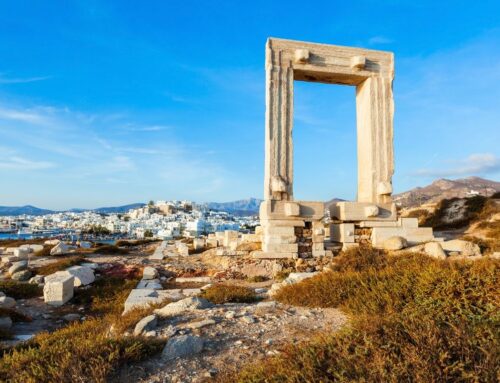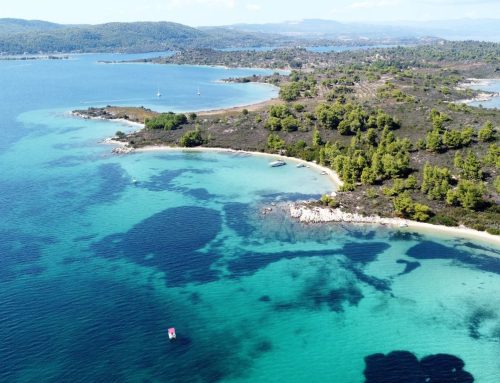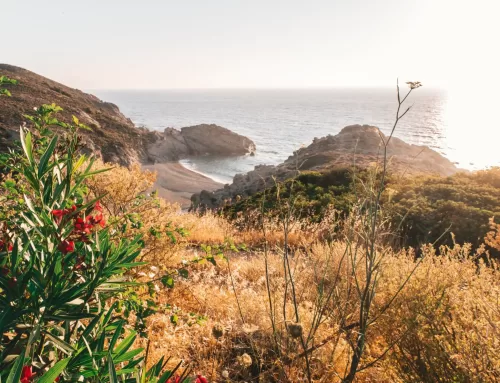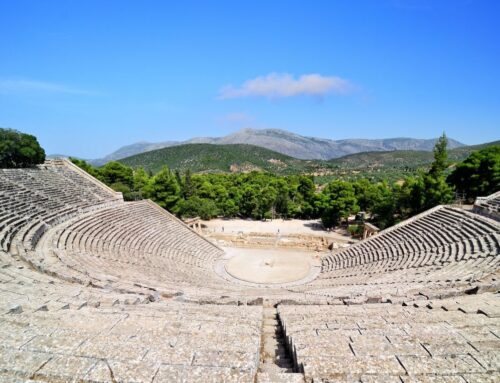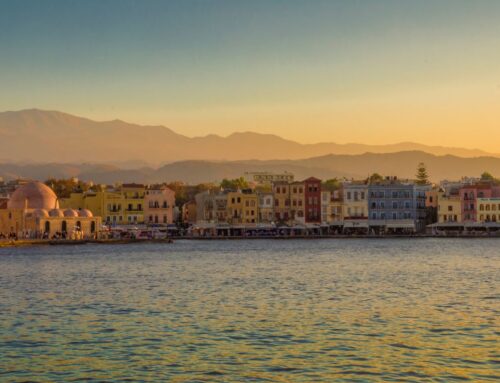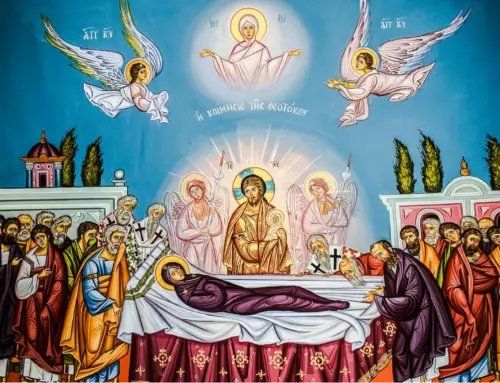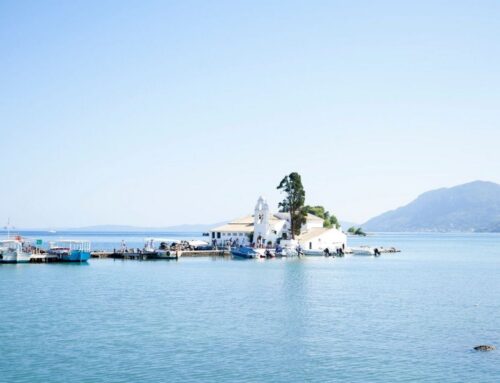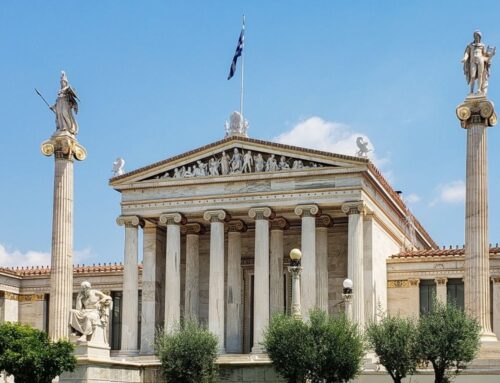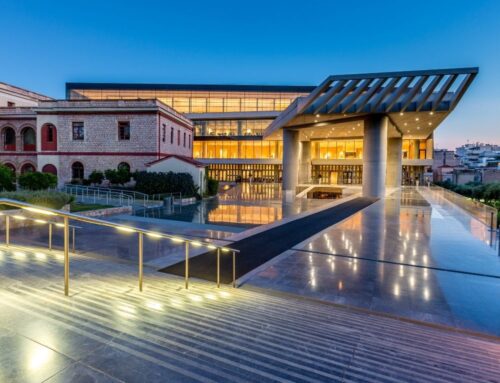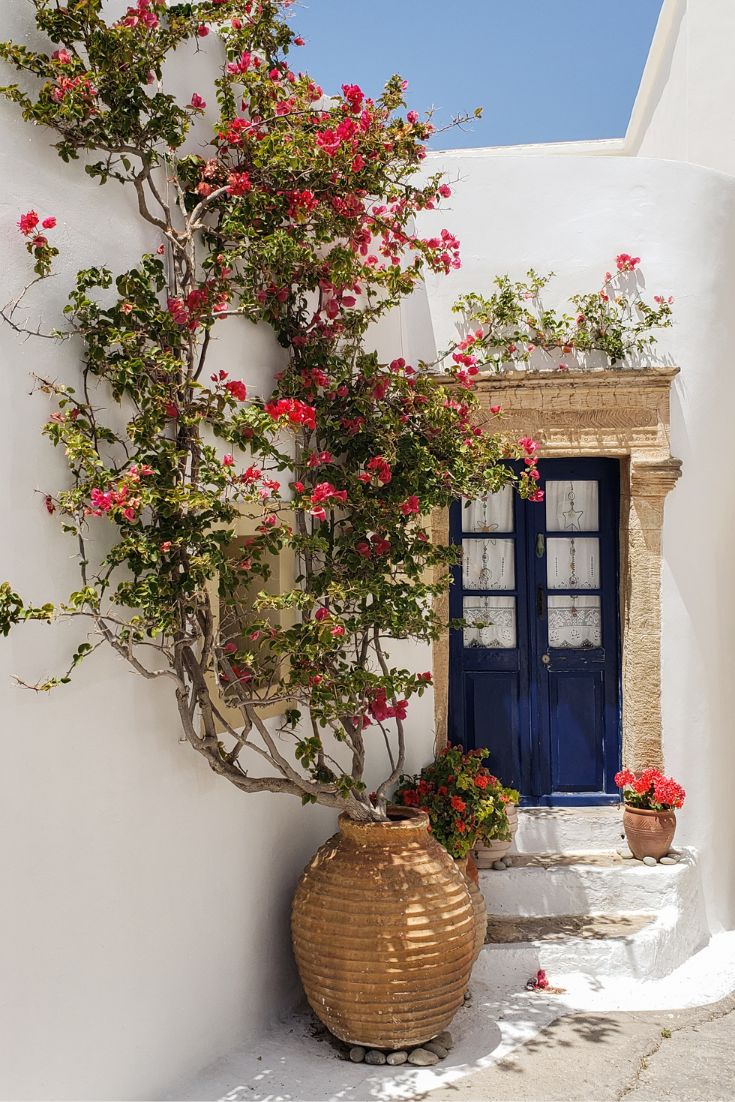An A-to-Z Guide to Greece For You To Explore On Your Own
An A-to-Z Guide to Greece For You To Explore On Your Own
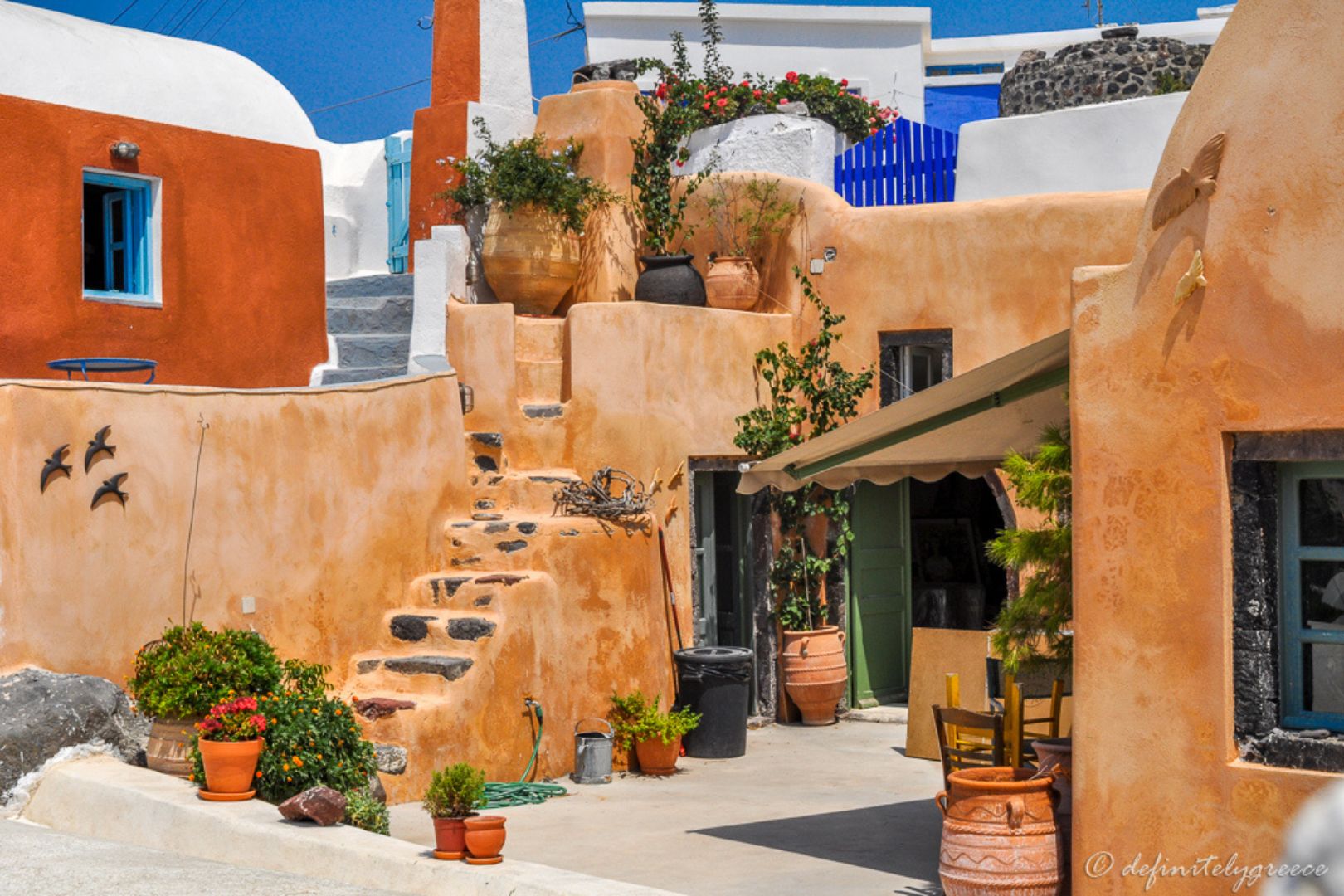
☞ Table of Contents:
Preferred destination for millions of tourists annually – 33 million in 2018 to be exact – Greece really has it all; soak up the sun, explore the countryside or taste all the food that is humanly possible.
Go on we won’t judge!
So whether you are heading to your Greek holiday soon,
Considering booking a one-way ticket to escape the cold,
Or simply planning your holiday.
Our handy Greece A to Z guide can help you become better acquainted with the land of gods.
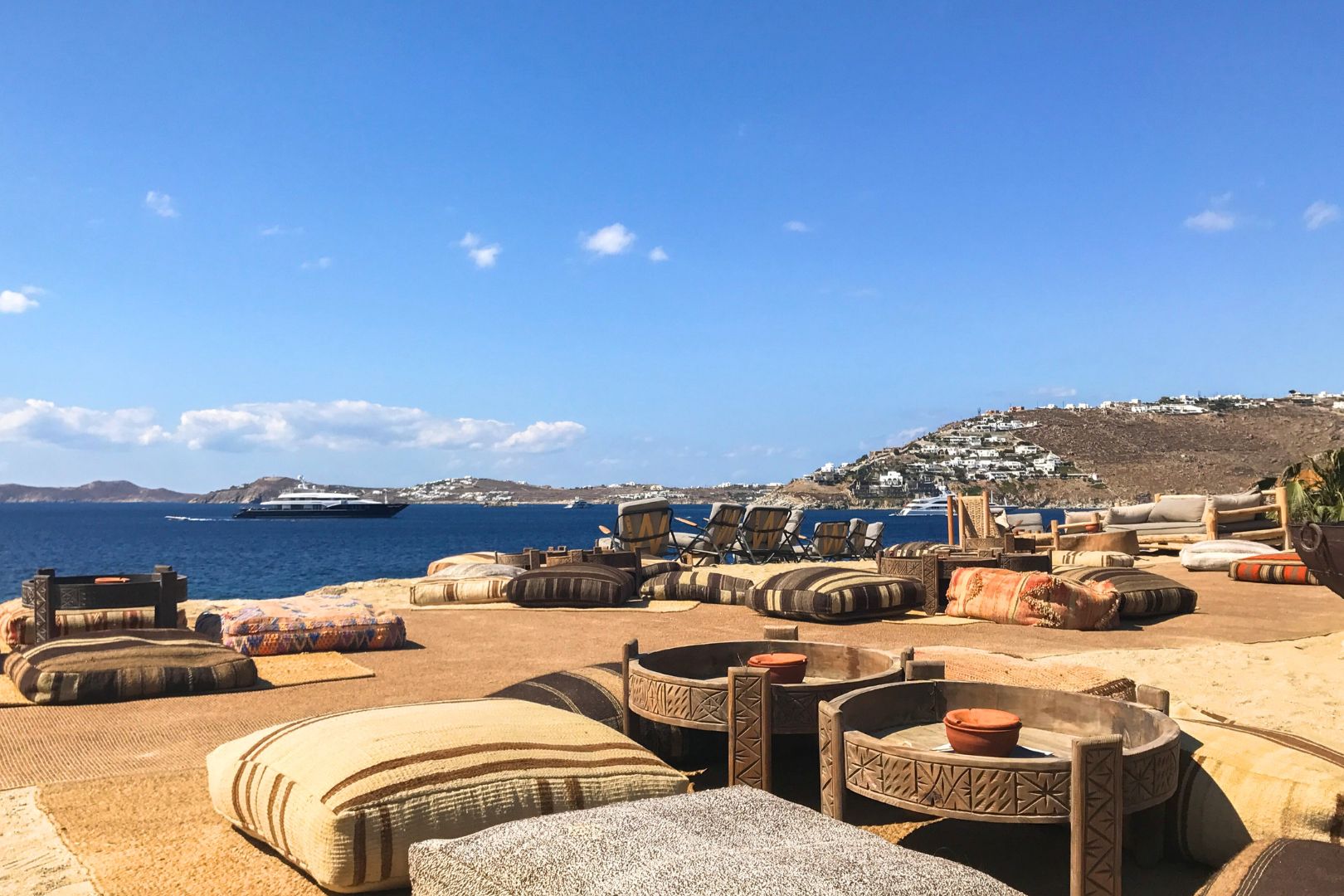
B
stands for all the shades of blue. From the deep sky blue of the Greek flag to the turquoise waters of the Aegean Archipelago and the bright blue domes of Santorini. Greece wears its national color boldly and proudly.
C
is for the island of Crete. Fifth-largest in the Mediterranean, Crete offers a diverse array of options for travellers. Golden sand beaches? Check! Rich history dating back to the Neolithic Age? Check! Traditional cuisine renowned for its fresh ingredients and unique flavors? Check!
D
is for Delphi. Oracle of the ancient world and the best vantage point to admire the famous valley of olive trees.
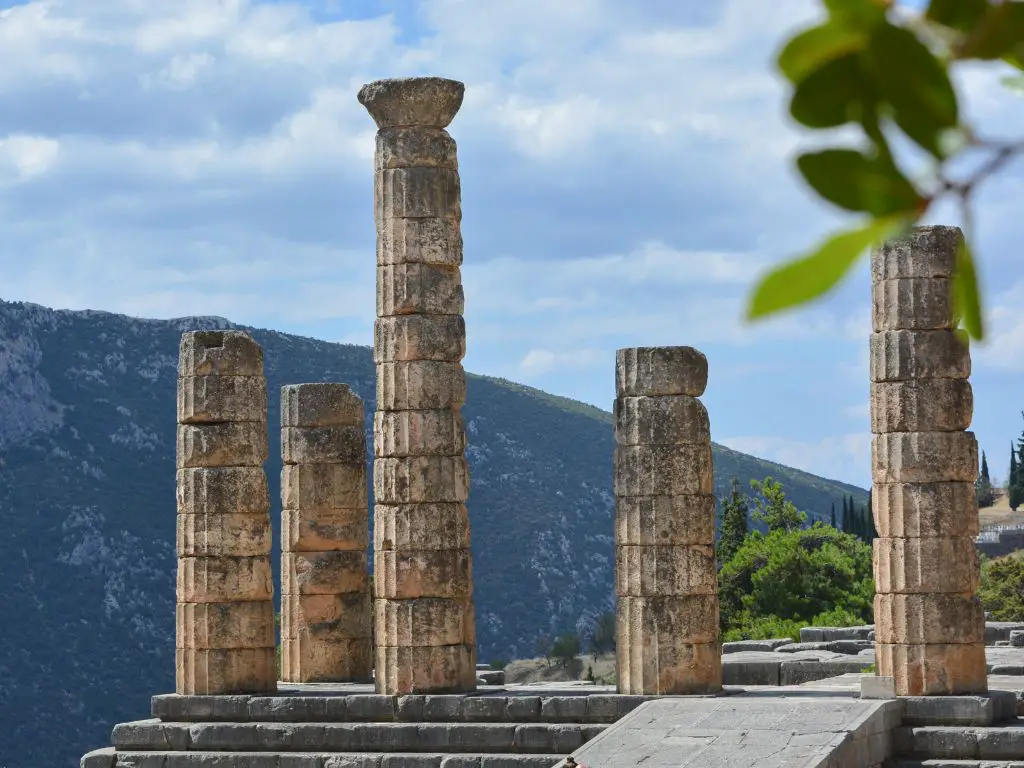
E
is for ecotourism. If your idea of travel involves environmentally friendly adventures and activities, allowing you to admire and preserve the natural areas then Greece should be on your list.
Vamos Village is only one of the many places in Greece that focuses on sustainable ecotourism and agrotourism and offers a variety of activities for their guests, from olive oil tasting to grape harvesting!
F
is for food. A Greek diet encompasses nutrient-high foods, lots of fruits, vegetables, and nuts as well as a healthy dose of wine! Three musts are olive oil, oregano, and feta cheese! Other f’s worth trying are fakes – traditional Greek lentil soup, fasolada – rich white bean soup with carrots, celery and tomato paste, and fava – a yellow split pea dip that is mixed with garlic, onion aaand you guessed it, olive oil!
G
needs to be for Alexander the Great. The young King of the Macedon and pupil of Aristotle became one of the greatest world conquerors amassing one of the largest empires of the ancient world and spreading the Hellenistic culture and the Greek language from Egypt to northwestern India.
H
is for the ancient Greek physician and father of modern medicine Hippocrates. The first to systematically classify diseases, Hippocrates preferred a holistic approach to medicine and advocated the use of herbs and healing plants.
I
is for the over 6,000 islands that are scattered around the Aegean and Ionian Seas. Only 227 of those are inhabited so if you are looking to make your dreams of summers spent in isolated coves and beaches come true, there is hope!
J
is for John the Baptist. Blinded and exiled to the island of Patmos, tradition holds that St John received his vision from Christ in a small cave, now referred to as The Cave of The Apocalypse, that he later recorded in The Book of Revelations. The site of the cave and the adjoining monastery are of high historical and religious importance.
K
is for Kefalonia. The largest of the Ionian Islands, boasting emerald waters and white sand beaches, Kefalonia became famous as the location of the movie Captain Corelli’s Mandolin. A must visit while on the island is the Cave of Melissani. Go on, google it! The pictures just don’t do it justice!
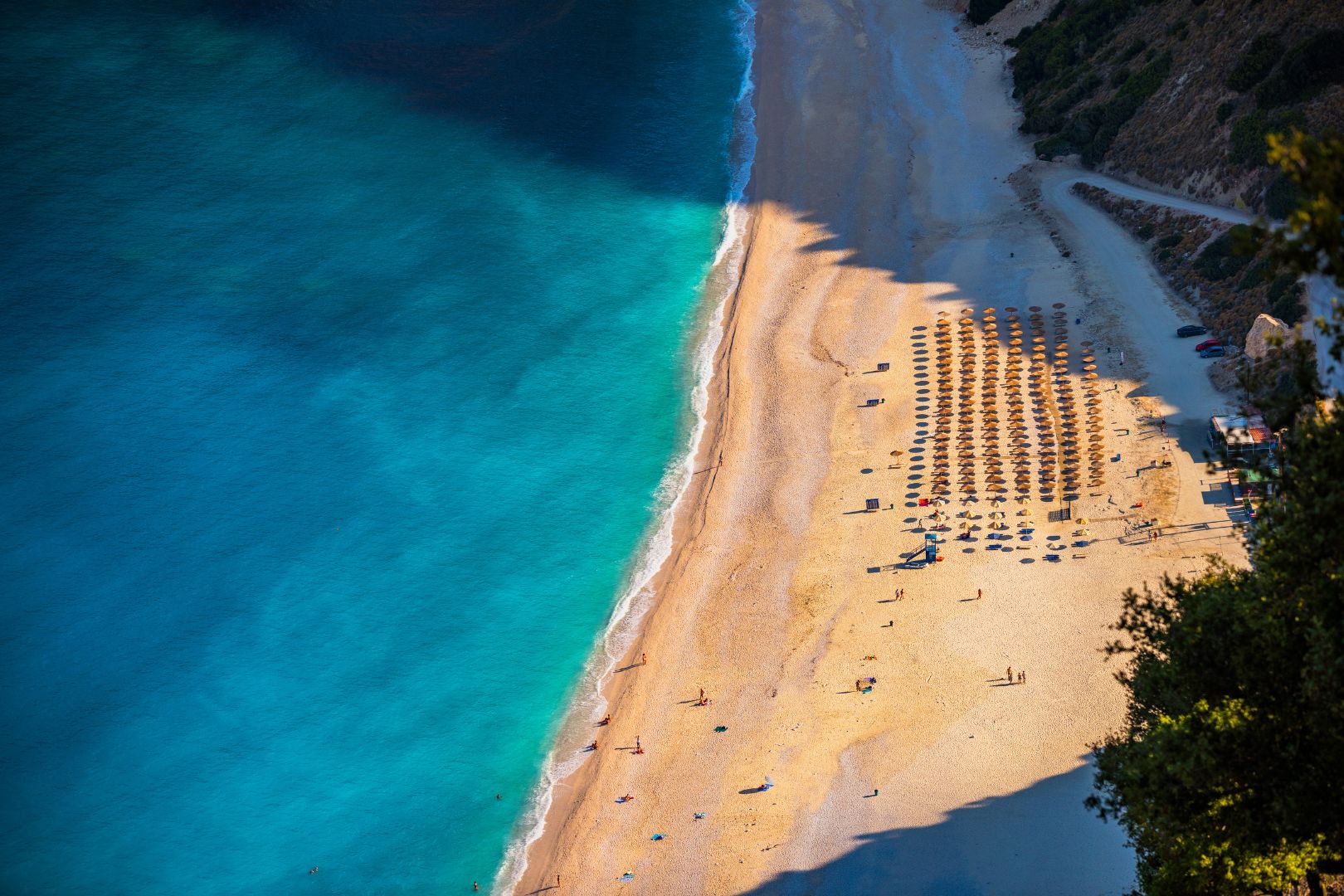
L
is for the Greek language. Did you know that the Greek language is the first Indo-European language recorded and is one of the oldest languages still in use today? Well, now you do!
M
is for Mystras, a ruined fortified city that served as the capital of the Despotate of the Morea in Peloponnese. The Byzantine village located high up in the mountains will have you feeling like you stepped back in time. Spend a few hours exploring the old ruins, castle, and monasteries that are protected by UNESCO as a World Heritage Site. You will not be disappointed.
N
is for Nike of Samothrace. The marble statue is widely considered to be one of the masterpieces of Hellenistic sculpture and has been prominently displayed in the museum of the Louvre since 1884. Nike is the goddess of victory in Greek mythology and if the name sounds familiar, it’s because of a quite popular shoe company!
O
is for olive oil. Referred to by Homer as liquid gold, olive oil is a staple of the Greek diet and with good reason. Known to reduce blood pressure, bad cholesterol and protect against a variety of cancers, it’s no wonder Greeks have the highest consumption of olive oil in the world. Averaging 20 litres each per year in comparison to the 1.1 that Americans consume.
P
is for philoxenia, the Greek word for…? Let me see if you can figure it out.
The prefix ‘phil’ from the Greek word philos, means to love. Other common words containing the prefix are philosophy, philanthropist, and bibliophile. The word ‘xenos’ has an ambiguous meaning translating to both ‘stranger’ as well as a guest-friend depending on context and interpretation.
Drumroll please!
Philoxenia means hospitality, a concept very deeply engraved in the Greek culture since antiquity. The ambiguity of the word ‘xenos’ is said to have originated from the notion that gods or goddesses could present themselves as common people/strangers. And that is why all strangers were to be treated as friends and guests of honor.
Q
is for quotes. No, that is not a Greek word. We admit to having slightly cheated. But there are just so many words of wisdom passed down from ancient Greek philosophers that are still relevant today. For example…
By all means, marry. If you get a good wife, you’ll become happy;
if you get a bad one, you’ll become a philosopher.
Socrates
R
is for Rhodes. The largest island of the Dodecanese, Rhodes has a rich history dating back to the Neolithic age. In ancient times Rhodes was famous for the Colossus, one of the 7 Wonders of the Ancient World. It was an enormous 100-foot tall bronze statue located by the port entrance of the island that depicted the titan-god Helios (sun). Currently, Rhodes is one of the most visited islands of Greece with the second most visited archaeological site, the Acropolis of Lindos.
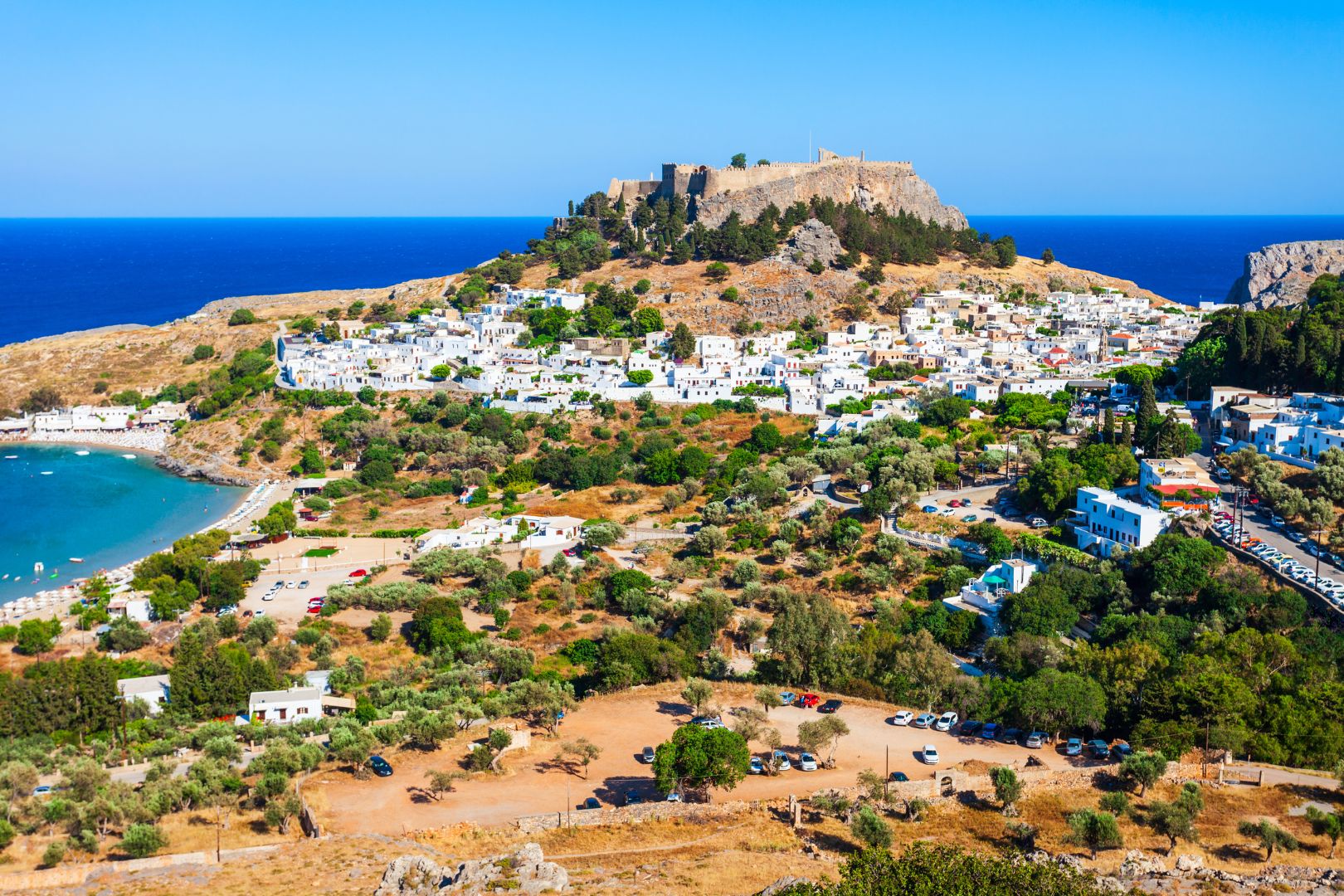
S
is for Santorini, the unique active volcanic island and its world-famous magical sunsets. Even though commonly referred to as a single island, Santorini is, in fact, an archipelago of five islands that used to be one, which got separated during the earthquake circa 1500 – 1700 BC. Myth has it that the Akrotiri of Santorini is the location of the lost city of Atlantis!
T
is for tavernas. Everyone visiting Greece needs to experience the traditional setting of a Greek tavern, usually in summer and ideally right by the water. What makes the experience worthwhile is not just the food, but the idea that good food needs to be shared with good company and some good wine or ouzo! So you could very well start at lunch and find yourself leaving after dark having tasted half the menu, made some new friends and awkwardly danced to some Greek dances.
U
is for the eighteen UNESCO World Heritage Sites that are located in Greece. They include the Acropolis, the old town of Corfu and the monasteries of Meteora.
Here is a complete list.
Which ones have you ticked off your list?
V
is for the Royal Tombs of Vergina. Discovered in 1977 by Manolis Andronikos, the archaeological site is located in central Greece where the ancient Greek kingdom of Macedon established its first capital, Aigai. The discovery of the tomb of Philip II – father of Alexander II – which was found intact, has been of astonishing archaeological significance.
W
is for Greek wine. Produced and exported since antiquity, wine has played an important role in the culture as well as the economy of Greece. Dionysos, the god of wine, pleasure, and fertility, was one of the most beloved and worshiped by the people. Not hard to see why! There are over 300 unique indigenous grape varieties, so we suggest you get tasting.
Even if you can’t pronounce the names.
X
is for Stavros Xarhakos. You might not have heard of the name before, but this Greek composer and conductor has written songs beloved by generations that speak to the heart of the Greek people. The style of music he mainly composed, called Laika ( or traditional ) will have you up and dancing in no time. If you don’t believe me, see for yourselves here.
Y
is for Yanni. The Greek composer and music producer has gained worldwide success with his style of music often associated with the New Age genre. As he once stated, his music, which is mostly instrumental,
“…does not describe the circumstances, but how the circumstances make you feel.”
Z
is for zeibekiko, a Greek folk dance with no steps. An unwritten rule is that you don’t dance a zeibekiko but rather feel it and let your emotions be expressed through the moves. It is considered a dance of sorrow and mourning with the dancer releasing, through the dancing, some of their pain and worries. The dance, once only performed by men, is done by one person at a time, only giving way to the next, if the first permits. To interrupt someone dancing a zeibekiko can be considered an insult. But don’t worry, if you are ever in the presence of someone dancing a zeibekiko, just clap and occasionally yell opa!
Most popular Greek destinations and trips
Athens Mykonos Santorini Crete – our most popular itinerary covers the jewels of the ancient world and some of the most cosmopolitan locations that Greece can offer. Join us on an 11-day tour to discover the beauty of the Aegean and the people and flavours that you have always dreamed of.
Discover Peloponnese – a mythical land of gods and heroes. The Peloponnese in the southern part of Greece is full of castles, palaces of ancient Kings, stunning beaches and traditional villages. A 9 day tour, tailor made for your preferences.
Athens – the capital of Greece and most popular destination for international and domestic travellers. Visit the Acropolis and the Panathenaic Stadium, explore the food markets and explore the birthplace of democracy.
*Disclaimer: This page might include affiliate links. If you decide to book something through one of them, I might get a little bonus, but it won't cost you anything extra.*


